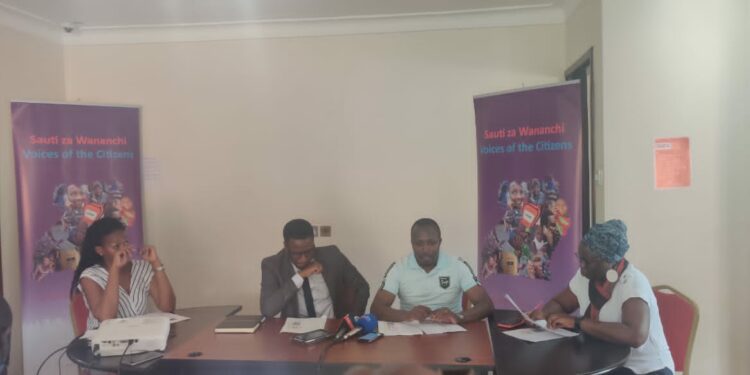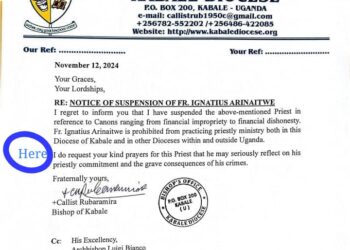The female gender in Uganda continues to face cut-throat challenges that limit their opportunities to take part in several sectors of life.
This is according to the new data released today March 10th, 2022, by Twaweza Uganda, to mark the International Women’s day, while highlighting challenges faced by women before, during and after the Covid-19 pandemic.
The findings are based on data from “Sauti za Wananchi”, Africa’s first nationaly representative high-frequency mobile phone survey.
They are also based on data collected from between 2000 and 3000 respondents accross Uganda in December 2020, December 2021 and January 2022.
According to the study, half of the citizens reported that in their communities, physical violence stands at 15%, emotional violence at 51%, while sexual violence or assault that was at 46% got worse during the Covid-19 outbreak.
The largest effect, as reported by citzens was teenage pregnancy . 8 out of 10 citizens (79%) said that these increased in the community during the outbreak.
When it comes to school closures and their social impact, 2 out of 3 citizens say girls are worse affected by school closures than boys. Women, residents of urban areas, younger citizens, wealthier and better educated citizens are more likely than others to think girls are more affected by closures than boys.
The main reason supplied by citizens as to why girls are more affected by school closures is that teenage pregnancy is increasing to a tune of 45%, followed early marriages at 15%.
Combining these reasons with others, almost all the reasons why citizens see girls as more affected by school closures relates to sexual behaviour.
When household members were asked directly, 1 out of 10 households estimated at 8% have a girl of school going age who become pregnant in the past six months. This figure is higher among poorer households at 14%.
Those with no education or incomplete primary education (10%), with eastern Uganda scooping 13%, while northern accounts for only 12%.
Among these girls who were (or are) pregnant in the past six months, 9 out of 10 of them (88%) were in school prior to becoming pregnant. About half of them (56%) intend to return to school after their pregnancy.
Marriage is the most common reason given for why the girl will not return to school (11%), and for what she will do instead of school (10%).
In addition to these significant social and problems facing girls and women in particular, women are much less likely than men to be actively engaged in governance process. Men (48%) are more likely than women (35%) to have attended a community meeting in the previous twelve months.
Men (22%) are also more likely than women (14%) to have spoken during such a meeting .
Similarly, women (82%) are less likely than men (85%) to seek information from public institutions. Men are more likely than women to seek information from; a political party office (57% vs 44%), a village or street level government office (22% vs.13%), government ministry or office (8% vs 5%), a public school (10% vs.6%), a water supplier (18% vs 11%), a government or public website (17% vs 8%), or another type of entity like an NGO or company (35% vs 26%).
However, women (63%) are slightly more likely than men (60%) to seek information from a public health facility.
While addressing the press, during the release of this data at Twaweza offices in Naguru Kampala, Marie Nanyanzi of “Sauti za Wananchi” at Twaweza expressed serious concern over the worsening gender inequalities precipitated by the Covid-19 pandemic.
She illustrated, with reference to the released data, how women and girls were affected by the pandemic.
“Many young girls became pregnant and will not have the chance to return to school. These impacts are made worse by lower levels of participation in local government by women, which means their voices and experiences are much less likely to be heard or considered in decision making spaces,” explained Nanyanzi.
For her part, Violet Alinda, country lead for Uganda at Twaweza emphasised the importance of underlining the heavier burden borne by women before, during and after the global corona virus crisis.
“We are calling on communities accross the country to pay attention to these deep rooted inequalities and exclusion faced by women and girls. They are marginalised from critical conversations, while bearing the brunt of any crisis. As long as this continues, we can never truly hope to progress as a nation,” said Alinda.
Twaweza is a Kiswahili word literally meaning “We can make it happen”. It is a Non Governmental Organisation (NGO), tasked with demonstrating how citzens can come together to collectively address their problems, make government work better for them, enable citzens’ voices, interests and experiences to be heard and taken seriously in decision -making.
Its operations are regional based, with offices in Uganda, Kenya and Tanzania.
Do you have a story in your community or an opinion to share with us: Email us at editorial@watchdoguganda.com













